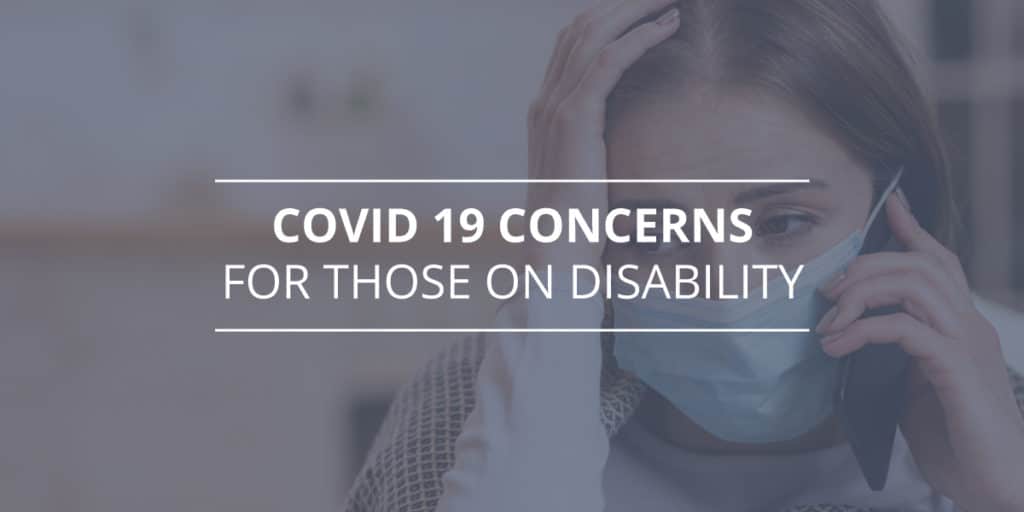
Since it first arrived in the United States, the novel coronavirus has caused over 110,000 deaths and sickened more than 2 million people. It has also caused massive unemployment, which lead to the passage of the CARES Act. As part of this historic bill, every American who met the income limits received a $1,200 check from the federal government — plus $500 for each child.
For those currently receiving disability benefits, this has raised questions about how the stimulus payment will affect them. Many disability programs consider recipients’ income and assets as a condition of eligibility. This economic impact payment will not affect your disability benefits, provided that you spend the check within a year.
If you are unable to work due to a disability, you may qualify for certain benefits. A skilled Cherry Hill disability benefits attorney can help you determine which programs you may be able to participate in, such as those offered by the Social Security Administration (SSA). Read on to learn more about the income and asset limits for certain types of benefits, and the impact of stimulus payments on those benefits.
Which Disability Benefit Programs Have Income and/or Asset Limits?
Disability benefits are available from the federal government and state governments, including Pennsylvania. These programs include:
- Social Security Disability Insurance (SSDI)
- Supplemental Security Income (SSI)
- New Jersey Temporary Disability Insurance (TDI)
Of these three programs, only SSI is a needs-based program. Both SSDI and TDI require that a person paid into the program by working and paying taxes. There is not a limit on the amount of income or assets that a person can have in order to qualify for SSDI or TDI.
In contrast, SSI is limited to individuals who — in addition to being 65 or older, blind, or disabled — have limited income and resources. For purposes of qualifying for SSI, income includes money earned from work, money received from other sources (including other SSA benefits and veterans benefits), and free food or shelter. Resources include things that a person owns, including cash, bank accounts, land, vehicles, personal property, life insurance, and anything that could be converted to cash.
The process for determining what income and which resources count for SSI is complicated. If you have more than the allowable limit for income or assets, you will either not qualify for this type of benefit, or your monthly benefit amount will be reduced in proportion to the amount that you exceed the limit. This facet of the SSI program has raised concerns for individuals on SSI who are eligible for a cash payment from the government under the CARES Act.
Will My Stimulus Payment Make Me Ineligible for SSI?
When the CARES Act was first announced, there was a question about whether recipients of disability benefits would receive a stimulus payment and the amount that they would receive. During the debate on the bill, there were some politicians who argued that SSI recipients should only receive $600, rather than the full $1,200 payments. The final version of the bill provided that all Americans will receive a stimulus payment, with payments decreasing based on individuals who earned more than $75,000 or couples who earned more than $150,000.
If you filed a tax return for 2019 or 2018, then the IRS will issue the stimulus payments directly to the same bank account as used for your tax refund. If you did not get a refund, then the check will be sent via the mail. Individuals who did not file a tax return in 2019 or 2018 and who do not receive benefits electronically can use the IRS’ non-filer payment tool to enter their personal and bank information.
According to the SSA, these payments will not be considered as income for SSI purposes. The payments are excluded from resources for a period of 12 months. This means that as long as you spend the stimulus amount within a year of receiving it, this amount of money will not be used to calculate your SSI benefits or otherwise determine your eligibility for SSI.
Because you must have a relatively low income to qualify for SSI benefits, anyone who receives these disability benefits will be eligible for the full amount of the economic impact payment. This payment will not be counted against you for SSI eligibility purposes unless you have retained some or all of the $1,200 within 12 months of receiving it. If you have held onto this money, then it will be considered resources.
Interested in Learning More? Reach Out Today.
If you are unable to work due to a disability, you may be eligible for disability benefits, including SSDI, SSI, and/or temporary disability benefits in New Jersey. The process of applying for these benefits can be confusing. A seasoned Cherry Hill disability benefits attorney can help you with the application and any appeals that may arise.
For more than 20 years, Bross & Frankel has represented people with disabilities as they seek Social Security, veterans, and long-term disability benefits. We offer free claim reviews, where we will explain your rights and options for pursuing a claim. To learn more or to schedule a consultation, contact us today at 856-795-8880 or email us at any time.

Rich Frankel is the managing partner of Bross & Frankel. He is a member of the New Jersey and Pennsylvania bars. He has focused exclusively on disability and social security benefits since 2005.
Mr. Frankel joined what is now Bross & Frankel after having watched his father struggle with disability, fighting a lengthy illness. Mr. Frankel founded the firm’s veteran’s law practice and substantially grew the social security disability practice, focusing Bross & Frankel’s ability to fight for all of the disability benefits available to his clients.
Mr. Frankel additionally fights for clients in court, obtaining frequent victories in Social Security appeals and against insurance companies in Federal court.